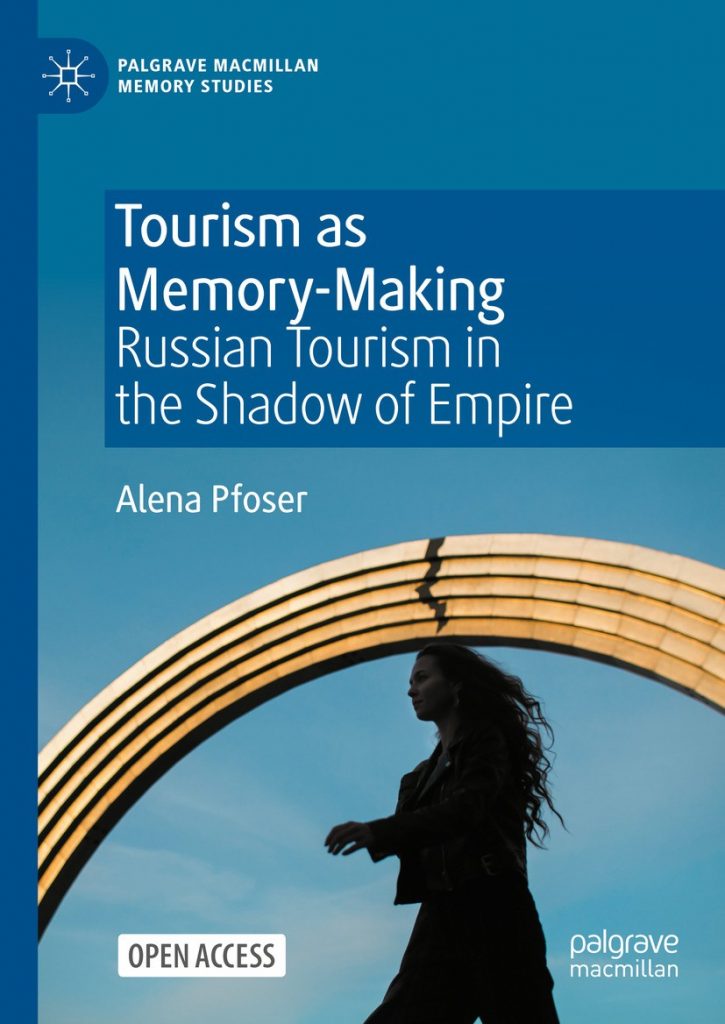Book launch event: Tourism as Memory-Making: Russian Tourism in the Shadow of Empire, by Alena Pfoser

The CRCC will be hosting a book launch event on Wednesday 3rd December for member Alena Pfoser‘s recent publication: Tourism as Memory-Making: Russian Tourism in the Shadow of Empire.
Event details:
When: Wednesday December 3rd, 16.00-17.00
Where: U005 Brockington, Loughborough University, Loughborough, Epinal Way LE11 3TU and on Teams using the link below
This will be a hybrid event chaired by Professor Emily Keightley, Loughborough University. The author will be in conversation with Dr Jessica Rapson (King’s College London), a leading scholar of memory, commemoration and difficult heritage.
Refreshments will be provided.
Publication details:
This crucial new book puts forward a transnational approach that acknowledges diverse and entangled modes of remembering in tourism, situates memory-making in a wider political context, and reflects on its geopolitical implications.
Until recently the Russian Federation used to be one of the largest markets for outbound travel. Among Russians’ favourite destinations were cities that used to be part of the Russian Empire and the Soviet Union, and are now located in the independent nation-states bordering Russia. This open access book provides an empirically rich and conceptually sophisticated account of the mnemonic interactions between Russians and their neighbours in the shadow of empire and geopolitical confrontations. Based on extensive ethnographic research with tourists and tour guides in the cities of Tallinn, Kyiv, and Almaty before Russia’s full-scale war on Ukraine, it analyses the practices through which cultural memories are performed in tourism encounters, as well as the forms they take. Imperial nostalgia, the production and consumption of national pasts, and memory diplomacy are discussed as key modes of remembering in tourism.
Through the case of Russian tourism, the book argues for an invigoration of research on memory and tourism, which despite the significance of tourism for the circulation of cultural memories has so far received surprisingly little attention. Bringing debates in memory, heritage and tourism studies into a dialogue, the book expands the field of study beyond museums and heritage sites and puts forward a transnational approach that acknowledges diverse and entangled modes of remembering in tourism, situates memory-making in a wider political context and reflects on its geopolitical implications.
Microsoft Teams Need help?
Join the meeting now
Meeting ID: 331 981 054 005 16
Passcode: D4yd6Ei3